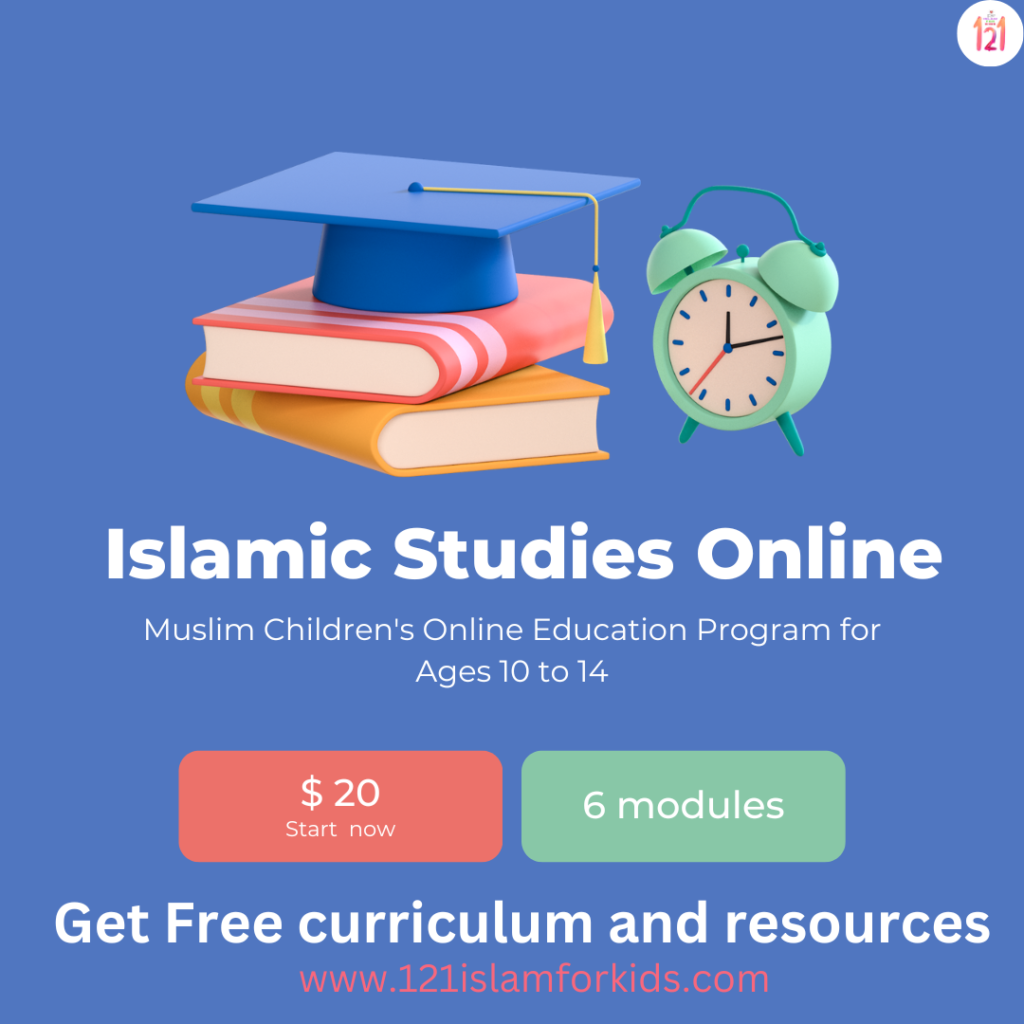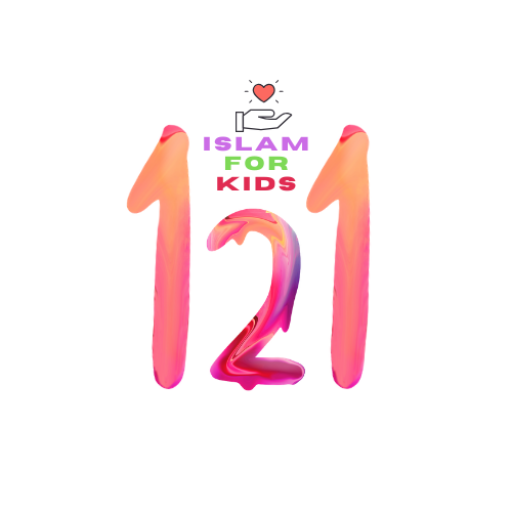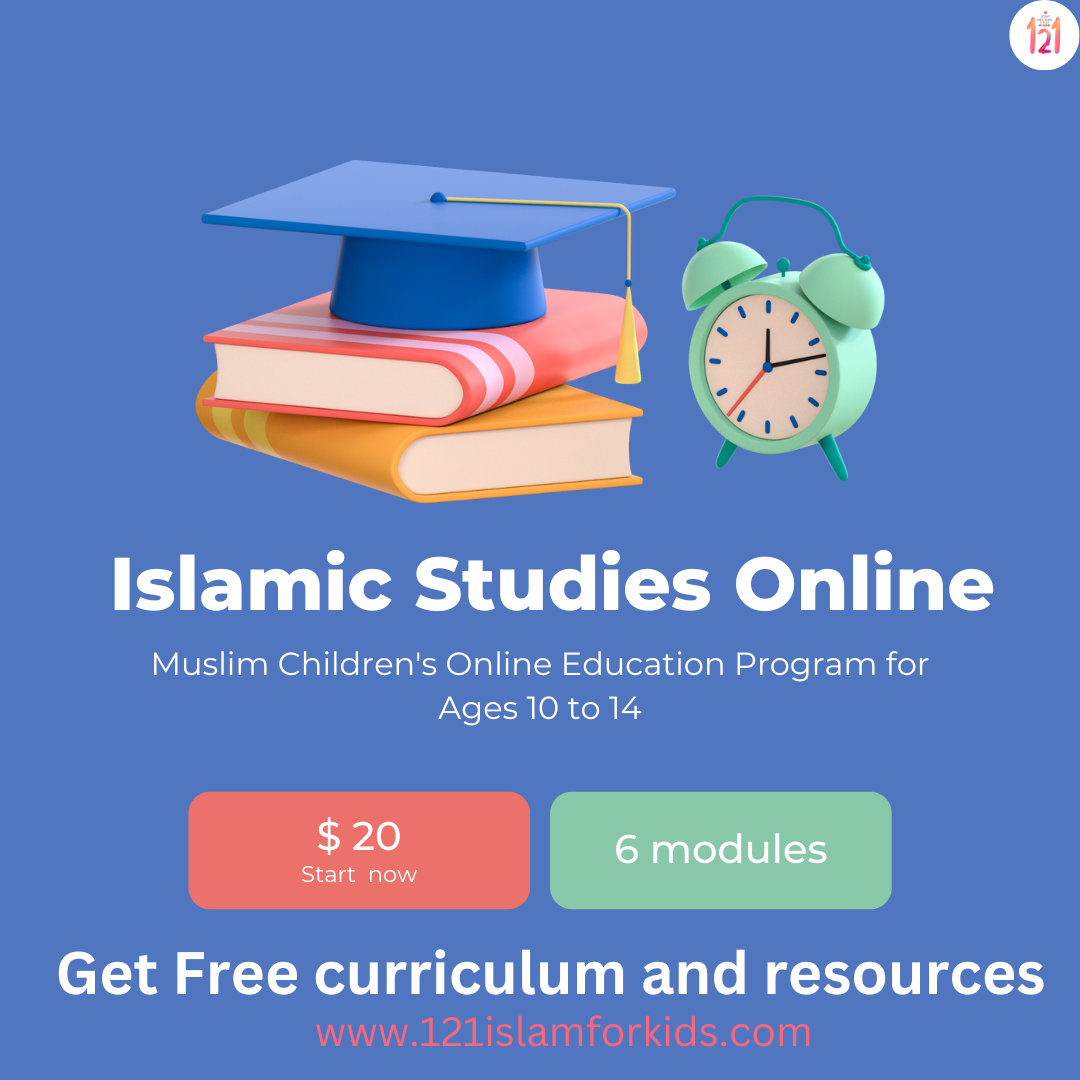Islamic studies online classes
This education program has been designed for our Islamic studies online classes for children and adults. In our online classes, we will teach according to these six modules. click the links to study these modules deeply.


Table of Contents
Muslim Children’s Online Education Program for Ages 10 to 14.
Introduction: This online educational curriculum is designed for Muslim children aged 10 to 14, aiming to provide comprehensive knowledge and guidance in various aspects of their faith, history, and personal development. The program is divided into six modules, each addressing critical topics to help young Muslims build a strong foundation in their religious and personal lives.
Module 1: Puberty, Sex Education, and Personal Responsibility:
Objective: To teach children about the physical and emotional changes they may experience during puberty, sex education from an Islamic perspective, and the importance of being responsible for their actions.
1.1 Understanding Puberty:
- Explain the biological changes during puberty in both boys and girls.
- Discuss the emotional and psychological aspects of puberty.
1.2 Islamic Perspective on Sex Education:
- Emphasize the importance of modesty and maintaining personal boundaries.
- Teach about the concept of ‘Hayaa’ (shyness/modesty) in Islam.
- Discuss the Islamic guidelines for marriage and the family unit.
1.3 Being Responsible for One’s Actions:
- Teach the concept of accountability and the concept of “Amanah” (trust) in Islam.
- Encourage self-discipline and self-awareness in their actions and choices.
- Highlight the significance of seeking forgiveness and repentance when making mistakes.
Module 2: Detailed History of Islam
Objective: To provide a comprehensive overview of the history of Islam, starting from the life of Prophet Muhammad (peace be upon him) to significant events and developments in Islamic history.
2.1 Life of Prophet Muhammad (PBUH):
- Explore the early life of Prophet Muhammad (PBUH) and his prophethood.
- Discuss his teachings and character as a role model for Muslims.
2.2 The Rashidun Caliphs and Expansion of Islam:
- Introduce the four righteous caliphs and their contributions to Islam.
- Explain the expansion of the Islamic empire and its impact on history.
Module 3: Muslim Golden Ages and Scientific Accomplishments
Objective: To explore the achievements of Muslims during the Golden Ages and their contributions to science, mathematics, and other fields.
3.1 The Abbasid Golden Age:
- Discuss the cultural and intellectual advancements during the Abbasid Caliphate.
- Highlight the House of Wisdom and its role in promoting knowledge.
3.2 Muslim Scholars in Science and Mathematics:
- Introduce famous Muslim scholars such as Ibn Sina, Ibn al-Haytham, Al-Khwarizmi, and others.
- Explore their contributions to medicine, optics, mathematics, and other sciences.
Module 4: Purification of the Soul
Objective: To help children understand the importance of spiritual development and purifying one’s soul in Islam.
4.1 Understanding the Nafs (Soul):
- Teach the concept of the Nafs and its different stages (Nafs al-Amara, Nafs al-Lawama, Nafs al-Mutma’inna).
- Discuss the struggle for self-improvement and achieving tranquility.
4.2 Acts of Worship for Spiritual Purification:
- Explore the role of Salah (prayer), fasting, and other acts of worship in purifying the soul.
- Emphasize the significance of sincerity (Ikhlas) in one’s worship.
Module 5: The Wisdom Behind Various Acts of Worship
Objective: To provide insights into the deeper meanings and wisdom behind different acts of worship in Islam.
5.1 Salah (Prayer):
- Explain the spiritual and physical benefits of performing Salah.
- Discuss the importance of mindfulness and connection with Allah during prayer.
5.2 Fasting (Sawm):
- Explore the purpose and benefits of fasting during the month of Ramadan.
- Highlight the spiritual significance of self-restraint and empathy.
Module 6: Deeper Tafseer and Explanation of Hadiths
Objective: To introduce children to the deeper meanings and interpretations of the Quran and Hadiths.
6.1 Tafseer of Select Quranic surahs / Verses:
- Provide explanations of selected verses from the Quran to enhance their understanding.
- Emphasize the relevance of the Quran in their daily lives.
6.2 Explanation of Hadiths:
- Introduce authentic Hadiths and their relevance to various aspects of life.
- Teach children how to apply Hadiths in their actions and decisions.
Conclusion:
This comprehensive online educational curriculum aims to empower Muslim children aged 10 to 14 with essential knowledge about their faith, history, and personal development. By fostering a deep understanding of Islam’s teachings and promoting responsible behavior, this program seeks to create informed and morally conscious young Muslims who can confidently navigate life’s challenges while staying true to their beliefs and values.
We are adding deep study and curriculum to teach these modules. please check the links.
How is this program? if it meets the needs of the modern world and Muslim children. please leave comments.

Leave a Reply
You must be logged in to post a comment.